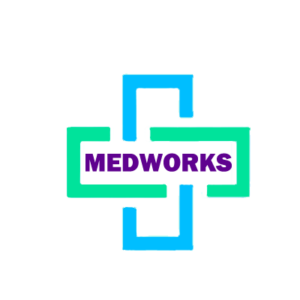World Mental Health Day

World Mental Health Day raises public awareness about mental health issues. The day promotes open discussion of mental disorders, and investments in prevention, promotion and treatment services. This year the theme for the day is “Depression: A Global Crisis”.
Depression affects more than 350 million people of all ages, in all communities, and is a significant contributor to the global burden of disease. Although there are known effective treatments for depression, access to treatment is a problem in most countries and in some countries fewer than 10% of those who need it receive such treatment.
Mental Health refers to a broad array of activities directly or indirectly related to the mental well-being component included in the WHO is definition of health: “A state of complete physical, mental and social well-being, and not merely the absence of disease”. It is related to the promotion of well-being, the prevention of mental disorders, and the treatment and rehabilitation of people affected by mental disorders
What Is Mental Illness?
Mental illnesses include such disorders as schizophrenia, schizoaffective disorder, bipolar disorder, major depressive disorder, obsessive-compulsive disorder, panic and other severe anxiety disorders, autism and pervasive developmental disorders, attention deficit/hyperactivity disorder, borderline personality disorder, and other severe and persistent mental illnesses that affect the brain.
These disorders can profoundly disrupt a person’s thinking, feeling, moods, ability to relate to others and capacity for coping with the demands of life.
Mental illnesses can affect persons of any age, race, religion, or income. Mental illnesses are not the result of personal weakness, lack of character, or poor upbringing.
Mental illnesses are treatable. Most people with serious mental illness need medication to help control symptoms, but also rely on supportive counseling, self-help groups, assistance with housing, vocational rehabilitation, income assistance and other community services in order to achieve their highest level of recovery.
Here are some important facts about mental illness and recovery:
- Mental illnesses are biologically based brain disorders. They cannot be overcome through “will power” and are not related to a person’s “character” or intelligence.
- Mental disorders fall along a continuum of severity. The most serious and disabling conditions affect five to ten million adults (2.6 – 5.4%) and three to five million children ages five to seventeen (5 – 9%) in the United States.
- Mental disorders are the leading cause of disability (lost years of productive life) in the North America, Europe and, increasingly, in the world. By 2020, Major Depressive illness will be the leading cause of disability in the world for women and children.
- Mental illnesses strike individuals in the prime of their lives, often during adolescence and young adulthood. All ages are susceptible, but the young and the old are especially vulnerable.
- Without treatment the consequences of mental illness for the individual and society are staggering: unnecessary disability, unemployment, substance abuse, homelessness, inappropriate incarceration, suicide and wasted lives; The economic cost of untreated mental illness is more than 100 billion dollars each year in the United States.
- The best treatments for serious mental illnesses today are highly effective; between 70 and 90 percent of individuals have significant reduction of symptoms and improved quality of life with a combination of pharmacological and psychosocial treatments and supports;
- Early identification and treatment is of vital importance; By getting people the treatment they need early, recovery is accelerated and the brain is protected from further harm related to the course of illness.
- Stigma erodes confidence that mental disorders are real, treatable health conditions. We have allowed stigma and a now unwarranted sense of hopelessness to erect attitudinal, structural and financial barriers to effective treatment and recovery. It is time to take these barriers down.
DEPRESSION
Depression can affect anyone and it is one of the most widespread illnesses, often co-existing with other serious illnesses.
According to the World Health Organization, unipolar depressive disorders were ranked as the third leading cause of the global burden of disease in 2004 and will move into the first place by 2030.
Depression is a common mental disorder, characterized by sadness, loss of interest or pleasure, feelings of guilt or low self-worth, disturbed sleep or appetite, feelings of tiredness, and poor concentration.
Depression can be long-lasting or recurrent, substantially impairing an individual’s ability to function at work or school or cope with daily life. At its most severe, depression can lead to suicide. When mild, people can be treated without medicines but when depression is moderate or severe they may need medication and professional talking treatments.
Depression is a disorder that can be reliably diagnosed and treated by non-specialists as part of primary health care. Specialist care is needed for a small proportion of individuals with complicated depression or those who do not respond to first-line treatments.
iMedWorks Ask Platform Links below:
1. Get a Medical Second Opinion
2. Search doctors and Request Appointment

Leave a Reply
Want to join the discussion?Feel free to contribute!